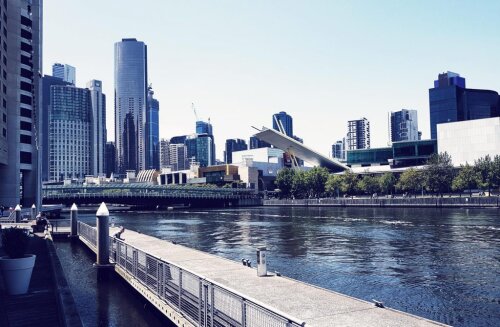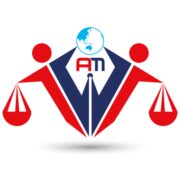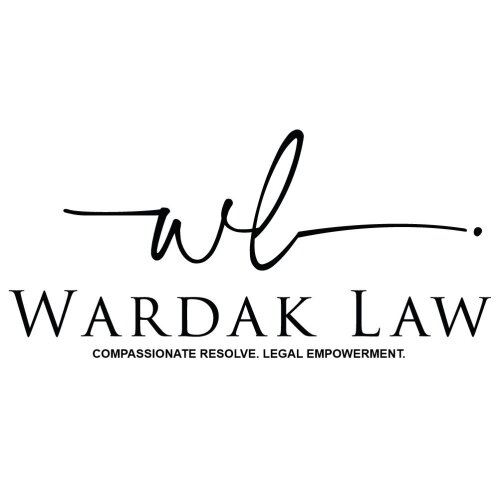Best Immigration Lawyers in Melbourne
Share your needs with us, get contacted by law firms.
Free. Takes 2 min.
List of the best lawyers in Melbourne, Australia
Australia Immigration Legal Questions answered by Lawyers
Browse our 1 legal question about Immigration in Australia and read the lawyer answers, or ask your own questions for free.
- What is the best thing to do, re lodge my visa or appeal.
- My student visa was refused because of financial incapacity wherein I used my sisters bank statement with the amount of 68,000 aud.
-
Lawyer answer by mohammad mehdi ghanbari
Hello,Thank you for reaching out. I understand this must be a very stressful and disappointing time, but please know that a visa refusal is not necessarily the end of the road for studying in Australia. Here is some general advice...
Read full answer
About Immigration Law in Melbourne, Australia
Immigration law in Melbourne, Australia, is governed by federal legislation enacted by the Australian Government. The primary statute that sets the framework for Australian immigration is the Migration Act 1958, which is supported by the Migration Regulations 1994. Melbourne, being one of Australia's most multicultural cities, sees a significant flow of immigrants each year, ranging from skilled workers, family reunification applicants, refugees, and students. The legal landscape in Melbourne is dynamic and can influence individuals and businesses looking for permanent residency, work visas, or sponsorship arrangements.
Why You May Need a Lawyer
There are several situations where individuals might require legal assistance in the immigration process in Melbourne. For instance, navigating complex visa applications and compliance with migration laws can be challenging without expert guidance. People often seek legal help for the following reasons:
- Understanding the types of visas available and determining the most appropriate one based on individual circumstances.
- Handling visa rejections or cancellations and planning the next steps.
- Managing cases of potential deportation or appeals in response to unfavorable immigration decisions.
- Navigating family sponsorship opportunities and ensuring eligibility for partner or family visas.
- Obtaining specific advice for unique situations, such as refugee and humanitarian considerations.
Local Laws Overview
The Australian immigration system is primarily nationally regulated, thus the primary legislative documents such as the Migration Act 1958 apply uniformly across Australia, including Melbourne. However, understanding local conditions, particularly with respect to specific visa requirements related to employment, education, and family settlement in Melbourne, is crucial. Key considerations include:
- Engagement with local employers and educational institutions for sponsorship or skilled migration.
- Understanding how state-sponsored visas may apply to residency criteria within Victoria, the state where Melbourne is located.
- Awareness of compliance requirements for visa holders, including work restrictions and study obligations.
Frequently Asked Questions
What types of visas are available for moving to Melbourne?
There are several visa categories, including skilled migration, employer-sponsored, business and investment visas, family visas, student visas, and humanitarian visas. Each category has specific requirements and conditions.
How long does it typically take to process an Australian visa?
Processing times vary depending on the type of visa. For example, student visas can take a few weeks, while skilled migration visas may take several months. Checking the latest processing times on the Department of Home Affairs website is advisable.
Can I appeal a visa rejection?
Yes, many visa decisions are reviewable by the Administrative Appeals Tribunal (AAT) if your application was lodged within Australia. It's important to lodge an appeal within the specified time limits.
What are the criteria for obtaining a skilled migration visa in Melbourne?
Applicants need to check the current Skilled Occupation List, meet age, English language proficiency, qualification requirements, and have skills assessments relevant to their profession.
How can I sponsor a family member to come to Melbourne?
Family visa options include partner, child, parent, and other family visas. Eligibility, sponsorship criteria, and processing requirements must be met.
Can I work while holding a student visa in Melbourne?
Yes, student visa holders can work up to 40 hours per fortnight during study periods and unlimited hours during scheduled breaks.
What happens if my visa expires while I'm in Australia?
You may become unlawful and risk detention and removal unless you apply for a bridging visa or take immediate steps to rectify your status.
Is it possible to gain permanent residency after studying in Melbourne?
Yes, graduates on Temporary Graduate visas may apply for skilled visas, depending on their occupation and meeting other criteria.
How do refugee or asylum seeker claims work in Melbourne?
Applications are lodged through the onshore protection visa system. Claimants must demonstrate a need for protection due to fear of persecution.
What are the consequences of providing false information on my visa application?
Providing false information can result in visa refusal, cancellation, and a potential ban from re-entering Australia. Accurate, honest information is vital.
Additional Resources
For those seeking legal advice or information on immigration in Melbourne, the following resources can be of great help:
- The Australian Government Department of Home Affairs - for visa information and applications.
- Legal Aid Victoria - for free legal assistance for those eligible.
- Migration Agents Registration Authority (MARA) - to find a registered migration agent.
- Refugee Legal - offers resources and advice for asylum seekers and refugees.
Next Steps
If you require legal assistance in the immigration process, it is advisable to consult with a registered migration agent or an immigration lawyer. Here are the steps to consider:
- Identify the specific visa or immigration issue you are dealing with.
- Gather all necessary documentation related to your situation.
- Schedule consultations with legal professionals to discuss your case.
- Review the credentials and experience of any experts you engage with.
- Ensure any migration agent you consult is registered with MARA.
Lawzana helps you find the best lawyers and law firms in Melbourne through a curated and pre-screened list of qualified legal professionals. Our platform offers rankings and detailed profiles of attorneys and law firms, allowing you to compare based on practice areas, including Immigration, experience, and client feedback.
Each profile includes a description of the firm's areas of practice, client reviews, team members and partners, year of establishment, spoken languages, office locations, contact information, social media presence, and any published articles or resources. Most firms on our platform speak English and are experienced in both local and international legal matters.
Get a quote from top-rated law firms in Melbourne, Australia — quickly, securely, and without unnecessary hassle.
Disclaimer:
The information provided on this page is for general informational purposes only and does not constitute legal advice. While we strive to ensure the accuracy and relevance of the content, legal information may change over time, and interpretations of the law can vary. You should always consult with a qualified legal professional for advice specific to your situation.
We disclaim all liability for actions taken or not taken based on the content of this page. If you believe any information is incorrect or outdated, please contact us, and we will review and update it where appropriate.
Browse immigration law firms by service in Melbourne, Australia
Melbourne, Australia Attorneys in related practice areas.















